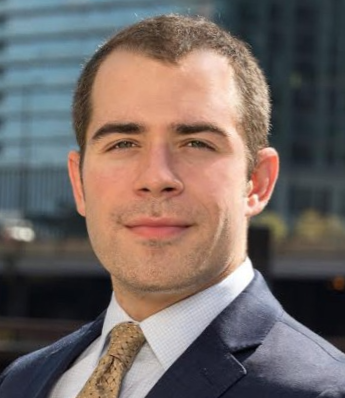I first entered foster care at age 10, after a car accident left my mother unable to care for me. For the next seven years, I had eight placements, including group homes, foster homes and emergency shelters. I even spent a few months living with my middle school principal.
Through all of this I was still lucky: I only switched school systems once, and I was able to develop a lasting bond with my final foster family. These factors were essential for me to successfully transition out of foster care into adulthood. But aging out of care should never be a function of good luck.

Many young people who experience foster care are frequently moved with little regard to their community ties; schools, athletics or religious groups, which can together form the bedrock of stability for youth in care. These youth are cared for by a social service system designed like a bad fairy tale: when the clock strikes midnight on an 18th or 21st birthday (depending on the state) youth find themselves simultaneously without either the skills they need to succeed nor the supports they need to survive.
Aging out of foster care today is effectively an eviction from the only housing, health care and educational support these at-risk youth have. In light of the COVID-19 pandemic, Congress has rightly provided a critical lifeline to these young people. Legislation extended emergency supports for these time-limited resources, including a moratorium on allowing these youth to arbitrarily age out of foster care.
These measures expired Sept. 30. I believe they should be made permanent.
Nearly a million youth and young adults were eligible for this emergency relief. Now that it has expired, hundreds of thousands of young people across the country are facing precisely the crisis Congress had originally sought to avoid. But the even sadder truth is that the foster youth crisis existed long before COVID-19.
Often deprived of family or economic resources, foster youth are more likely to struggle with unmet health needs, have unfulfilled school and work pursuits, and experience extreme poverty once cut off from care. We foster youth already face a steeper climb to adulthood than most. This struggle is made worse without simple, common-sense supports to offer us a fighting chance at success. In my own case, many of the individuals and institutions assigned to deliver care seemed unconcerned about my independent skill development: learning how to drive a car, opening a bank account, and applying for a job.
We must end once and for all the inhumane practice of arbitrarily aging out of foster care. Instead, let us work to create supportive pathways for young people that lead to healing, family stability and economic security. Reforms such as those proposed recently by the Annie E. Casey Foundation in its policy brief, From COVID-19 Response to Comprehensive Change: Policy Reforms to Equip Youth and Young Adults in Foster Care to Thrive, must incorporate the opinions, insights and successes of youth and families who have experienced foster care.
The pandemic has been harrowing for youth who had to endure it without a stable home. Having grown up in foster care myself, my heart breaks to imagine what they are going through now. Young people in foster care shouldn’t be treated as liabilities to be managed or a hot potato to be passed around until the clock runs out. They deserve stable and continuous community ties, relationships with trusted adults, and the opportunities to develop skills necessary for adulthood.
By enacting emergency measures to support youth in foster care during the pandemic, Congress showed the political will to build on reforms made over the last decade, including an increase in kinship placements and a decrease in placements of youth in group institutions. Instead of remaining a patchwork solution in an emergency, these temporary changes can become the foundation for even more effective and permanent reforms.
Out of every crisis comes opportunity and the chance to build back better. The temporary moratorium enacted by Congress was a wake-up call to permanently end the arbitrary and callous practice of aging out.
Young adulthood is a precarious yet promising stage of one’s development. Few among us at that age are ready to be entirely on our own at 18 or even 21. Young people, and especially foster youth, benefit from the stability of supportive older adults and the security of a safety net ensuring their basic needs. These are essential for us to pursue our educational and professional goals, and successfully thrive into adulthood.
Born of crisis, the temporary enhancements of the past year have the potential to transform the foster care system and the futures of hundreds of thousands of young people. I call on Congress to make permanent these transition supports for foster youth and work to ensure that every young person in America — and especially the ones entrusted to the state for their care — has a fighting chance at success as an independent adult.





